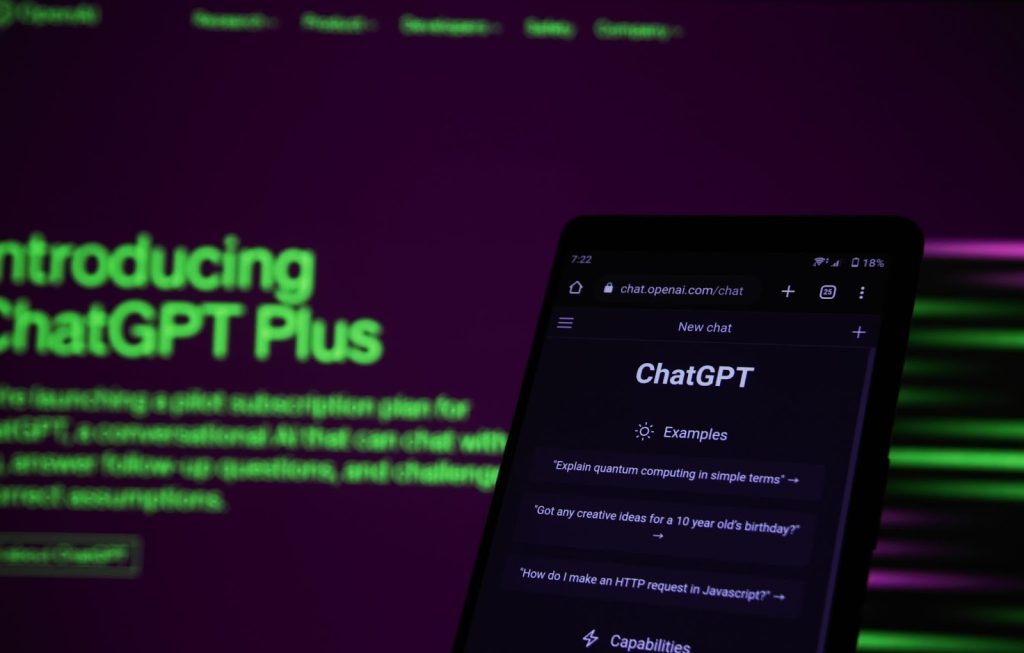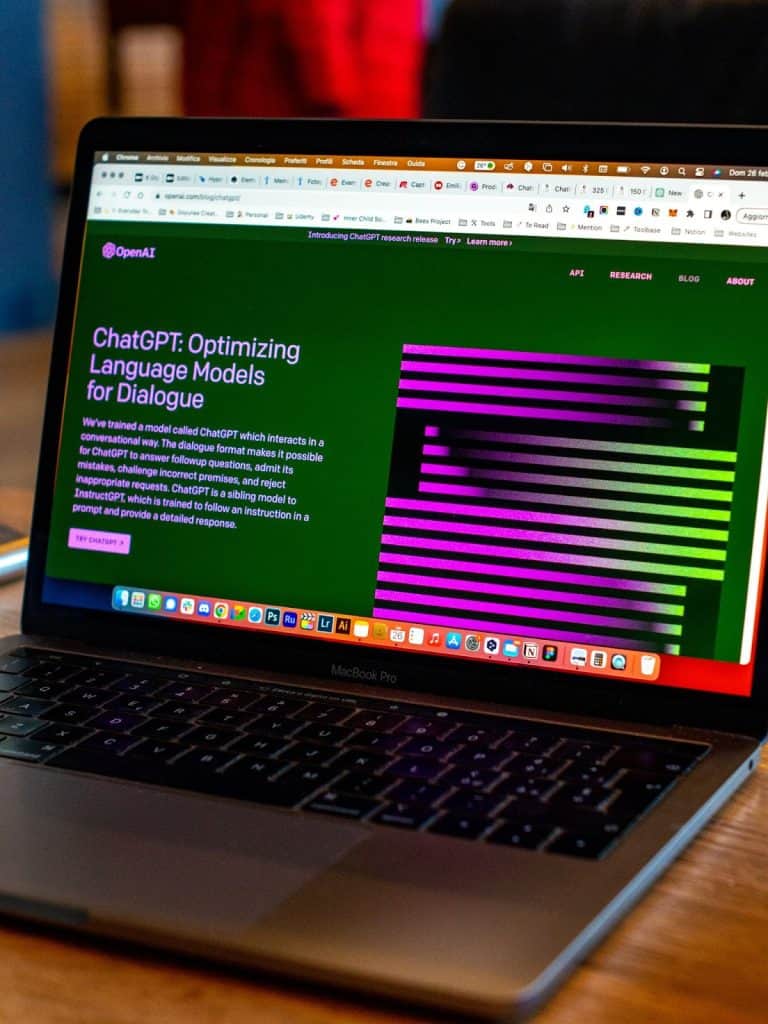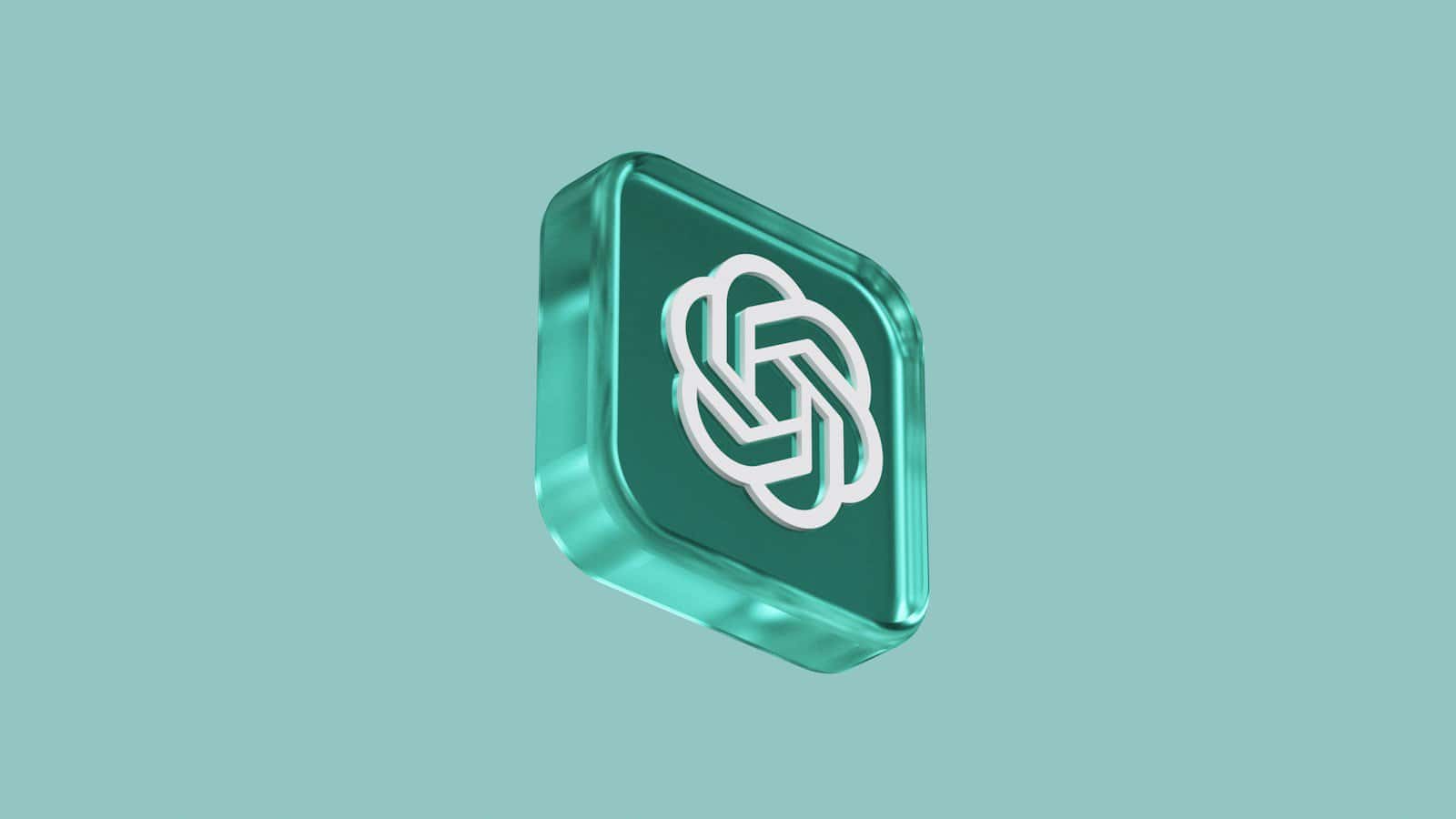ChatGPT, powered by advanced GPT-4 technology, has become an important tool for many content creators. It offers students and professionals efficient text generation features, but its growing popularity also raises questions about possible risks.
What challenges might users of this innovative AI tool soon face?
This article will examine the complexities of ChatGPT and its use in more detail, considering ethical and legal implications. It’s not just about understanding the tool, but using it wisely.
Our goal is to strike a balance. We want to leverage the benefits of using ChatGPT-generated content while ensuring responsible use. This is extremely important for anyone operating in the digital world of AI-driven technology.

What is ChatGPT?
ChatGPT is a chatbot that uses artificial intelligence. It is an advanced AI program that can process speech using deep learning to communicate with users through text-based messages and images. Developed by OpenAI, the program uses modern machine learning technology to generate texts that sound natural on the surface but can easily be detected and flagged by detection tools and algorithms that are trained to identify linguistic patterns in AI-generated content.
This tool understands context and recognizes patterns and linguistic subtleties. It works in different languages and is extremely versatile. ChatGPT is not just a chatbot; it is a revolution in digital communication.
It’s changing the way we communicate with each other online. ChatGPT is a testament to modern innovation powered by GPT-4. This AI program is changing how we interact with technology.


Never Worry About AI Detecting Your Texts Again. Undetectable AI Can Help You:
- Make your AI assisted writing appear human-like.
- Bypass all major AI detection tools with just one click.
- Use AI safely and confidently in school and work.
Motivations of Students to Use ChatGPT
The surge in ChatGPT’s use by students is noteworthy and won’t slow down anytime soon. Students are increasingly relying on AI in the search for efficiency and quality. The ability to obtain accurate and comprehensive information is a game changer. ChatGPT is not only fast, but it can also be used for extensive research.
This tool goes beyond data retrieval. It eases mental strain, helping students to organize their thoughts better. Large language models make studying a complicated topic less intimidating, even if it requires processing large amounts of information.
In essence, ChatGPT is reshaping the academic environment. It is a tool that not only simplifies research but also improves the quality of learning. Students now have a powerful ally in their educational journey.
Can You Get Caught Using ChatGPT-Generated Content?
The issue of detecting ChatGPT-generated content and similar programs is becoming increasingly relevant. As good as this tool is, it could be better. Universities and schools are intensifying their search for plagiarism and the fight against the misuse of AI technology. Being proactive is crucial to minimizing risks.
You need to be familiar with detection methods. Users must approach the use of AI programs with caution. Below we present some strategies on how to bypass ChatGPT detection to avoid getting caught.
These strategies are not just about evasion, but rather tips for using AI wisely and ethically. It’s about understanding the capabilities and limitations of the tool. The goal is to benefit from ChatGPT’s features while maintaining academic and professional integrity.

Strategies to Avoid Getting Caught Using ChatGPT
1. Don’t Let ChatGPT Write Your Entire Task!
To avoid suspicion and possible problems, you cannot fully rely on ChatGPT. Use it only as a support, not as a replacement. It can help you write better copy and express ideas better in your own words while reducing work time.
2. Check Your Work with an AI Detection Tool Before Submission
Ensure the originality of your work by checking for potential problems using AI detection tools. This step is crucial to identify potential matches with other texts and ensure the authenticity of your content.
3. Try a Paraphrasing Tool (with Caution)
When using paraphrasing tools, do so with caution in order not to change the meaning of the text and to preserve its originality. A careful approach minimizes the risk of AI detection.
4. Opt for GPT-4, Not GPT-3.5
The rapid progress in the field of artificial intelligence, particularly in terms of security in detection, presents us with an important decision. The latest version, GPT-4, offers significant advantages over older versions and provides additional protection against potential risks. Upgrading to the latest version can be an effective measure to minimize problems.
5. Rearrange Words and Reformulate Ideas Manually
Add a layer of authenticity to your work by manually customizing the text generated by ChatGPT. Not only does this result in better content because it contains your personal experiences, but it also reduces the likelihood of detection by AI detectors.
6. Use Undetectable.ai
Use Undetectable.ai for a safer approach to using text generators. This tool provides an additional layer of security against unwanted detection. Not only does Undetectable AI provide the best AI detection tool on the market according to Forbes, they also provide an AI humanizer tool that will reword the ChatGPT-generated text to sound more natural and read more like a human wrote it. This humanizer tool, at the click of a button, can repurpose a text instantly so that it will then pass all AI detection tools.
Thanks to these strategies, it is possible to use ChatGPT ethically and minimize the risks associated with AI detection to maintain the integrity of your academic work.
Ready to see the difference? Test the Undetectable AI widget below and experience firsthand how it can enhance your writing (English only).
Just input your text and watch as it transforms into a more humanized and polished version. Give it a try now!
Consequences of Getting Caught Using ChatGPT
Security and Data Violation Issues
Careless use of ChatGPT can lead to serious problems, especially when handling sensitive data. This lack of caution can leave users vulnerable to data breaches.
Handling sensitive information requires a careful approach. Failure to take security precautions can result in breaches of data confidentiality. Security is important.
Data security is of utmost importance. You must take appropriate precautions to avoid data issues when using ChatGPT. Users must remain vigilant to ensure that their information is not leaked.
Legal Issues
Using AI tools like ChatGPT for academic or professional purposes can have legal implications. Plagiarism is not only frowned upon, it is also prosecuted. This applies to both professionals and students, regardless of their personal financial gain.
Improper use of AI can lead to accusations, such as allegations of plagiarism. This misuse can result in legal consequences, including lawsuits or fines. It involves significant risk.
In addition, AI-generated content is also subject to copyright infringement. Users of AI programs need to be aware of this. They must adhere to legal and ethical standards to avoid problems to avoid being punished academically, risk losing their job, or even worse, face legal prosecution that can haunt them for the rest of their lives.
What Happens When You Get Caught Using ChatGPT?
Academic Consequences
If you are a student getting caught for using ChatGPT, it can lead to serious academic consequences that will affect your future. Penalties range from poor grades to serious disciplinary action, including suspension.
In addition to formal sanctions, the student’s credibility within the academic community and on the job market also suffers. He loses the trust of his peers. These negative effects can derail a career and negate the time and money invested in professional education.
Legal and Professional Implications
In addition to the mentioned academic repercussions, the misuse of ChatGPT can also lead to significant legal consequences. The problem lies in the possible violation of copyright and intellectual property. This could result in legal action, particularly if the content is used for commercial or academic purposes.
Lawsuits have a direct impact on credibility and image, but can also lead to high costs, including attorney fees and significant efforts to correct the error, even if it was unintentional.
What to Do If Falsely Accused?
Compare the Task with Your Previous Work
You have to prove that your work is original by proving its authenticity. You can compare the text with previous works. This way you can show that the writing style is the same and prove your innocence.
Share Edits on Google Docs and Microsoft Word
You should use Google Docs or Microsoft Word to provide clear and indisputable evidence of the authenticity of your work and show your involvement in the creation process. Show that you wrote the text yourself by making changes to your document. You can use previous versions as evidence to protect yourself from false accusations and the problems that come with them.
Inform the Professor About What You’ve Learned Regarding the Accuracy of AI Tools
Politely tell your professor that AI detectors also make mistakes and provide appropriate evidence. Research the programs used and objectively point out the risks of AI detectors. Demonstrate that you understand the consequences and risks of using ChatGPT for academic and professional purposes. This way you can convince your professor with plausible arguments to help you solve the problem.
Conclusion
ChatGPT is certainly a powerful and practical tool for writing academic and professional papers, but its use requires care and caution.
Applying smart strategies to avoid problems when using AI programs and understanding the implications of improper use, such as plagiarism and legal consequences, are critical. This way, you can enjoy benefits such as working faster, structuring ideas better, and conducting in-depth research without risking your academic and professional integrity.
The careful use of AI programs helps to avoid legal consequences that result from naive and incorrect use.
Furthermore, ChatGPT should be viewed with skepticism. Although it paves the way to increased productivity and creativity, users must remain vigilant and respect its boundaries to avoid abuse. This cautious approach not only protects against risk but also ensures that our professional integrity is maintained.
